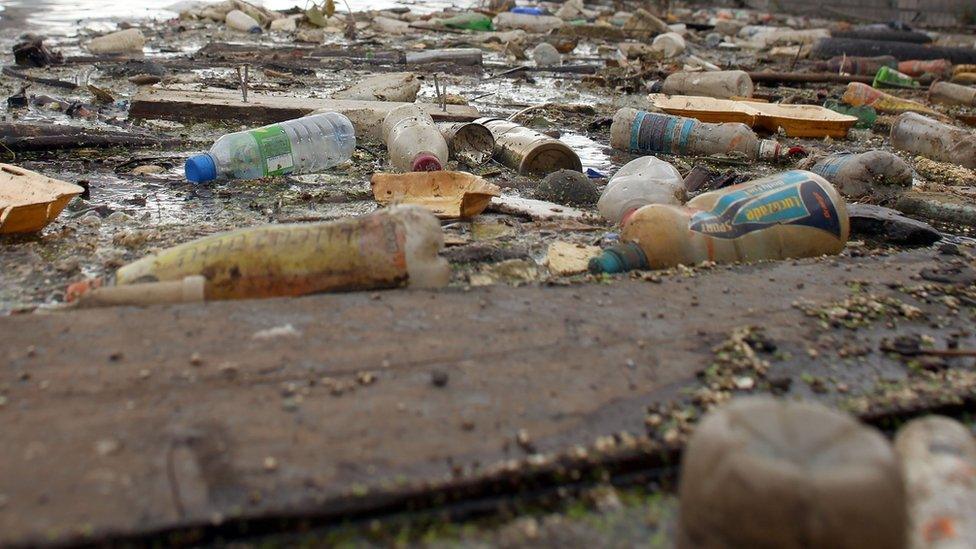All English rivers are polluted, say MPs
- Published
- comments

No English river is free from pollution, according to a new piece of research by MPs.
They claim that raw sewage, microplastics and slurry in rivers are putting health and nature at risk.
As well as this, they found evidence of car tyre particles, oils and wet wipes clogging waterways.
The group of MPs who carried out this research - the Environmental Audit Committee - have representatives from every political party.
In their findings, they said the only way to stop pollution was by the government reversing budget cuts for the environment agency.
In response, Environment Minister Rebecca Pow said: "We are going further and faster than any other government to protect and enhance the health of our rivers and seas."
Why is it a problem?
Lots of people across England use rivers for swimming and fishing. There are worries that the pollution in rivers could cause these people to become sick.
The water and riverbanks are also home to plant, fish and insect life and are essential to biodiversity. But chemicals and plastics are destroying these habitats.
The main way pollution enters rivers is through intensive farming, in particular from chicken farms.
Chemicals used on these farms including phosphorus and nitrogen leak into the water, causing algae to bloom in high levels.
The algae is the cause of the thick, bright green layer often seen coating rivers. This can prevent oxygen entering the water, suffocating life beneath the surface.
The report also says water companies are second only to agriculture in polluting rivers. They regularly dispose of raw sewage into rivers and fail to disclose overflows, it says.
Fatbergs and car tyres
All the things you didn't realise you need to know about fatbergs
What people do at home and outside also plays a major role in the pollution of rivers.
Microplastics worn away from car tyres and brakes are being washed from busy road into rivers.
Huge numbers of hygiene items, like wet wipes, also make their way into waterways, whilst things like oils and fats poured down sinks in homes and restaurants is adding to the pollution.
"Fatbergs" as big as blue whales have been removed from sewers in cities across England, costing companies and customers around £100 million a year, the report said.
The committee is calling on the government to ban single use cleaning and hygiene products containing plastics.
- Published15 November 2021
- Published5 February 2019
